Chickens are omnivorous, which means they will eat a variety of different types of food. In a natural setting, chickens will forage for seeds, insects, and other small animals as a source of food. A common misconception is that chickens are vegetarian. Feeding chickens vegetarian feed can limit their nutrition and negatively impact their health.
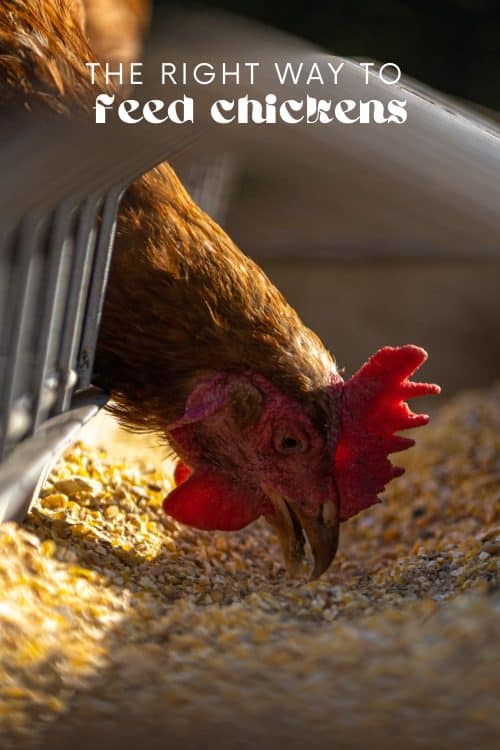
In a farm setting, chickens are typically fed commercial chicken feed, which is a balanced mixture of grains, protein sources, and other nutrients. The specific ingredients in a chicken feed will depend on the age and type of chicken, as well as the desired outcomes (e.g. egg production or meat production). This poultry feed is given with unlimited access so chickens can eat whenever they want.
Common ingredients in chicken feed include corn, wheat, soybeans, and other grains, as well as protein sources such as soybean meal and fishmeal. Vitamins and minerals may also be added to the feed to ensure the birds are getting all of the necessary nutrients.
In addition to commercial nutrient-dense food, chickens may also be given other types of food as supplements. For example, laying hens may be given oyster shell or limestone as a source of calcium to help with eggshell production.
Chickens may also be given vegetables and fruit as a treat, although these should not make up a significant portion of their diet. It is important to provide chickens with a varied and balanced diet to ensure their health and well-being.

Looking for more in-depth chicken-keeping information? Take my course, Chicks with Confidence!
Chicks with Confidence is a straight to the point, fact based digital course that walks you through exactly what you need to get raising your baby chicks without breaking the bank or causing you to panic everytime they make a weird sounding peep!
What do chicks eat?
Chicks have different nutritional needs than adult chickens and should be fed a different type of feed. There are different types of feed for the different life stages of a chicken.
Chicks require a diet that is high in protein and energy to support their rapid growth and development. They also need a source of calcium to help with the development of strong bones.
Chick starter feed is a type of feed that is specifically formulated for chicks. It is typically higher in protein and energy than adult chicken feed and includes added calcium to support the birds’ growth and development. Chick starter feed should be fed to chicks from the time they hatch until they are about 6 weeks old.
After 6 weeks, chicks can be switched to a grower feed, which is formulated for chickens that are growing but not yet laying eggs. Grower feed is lower in protein than chick starter feed and is formulated to support the birds’ growth and development.
Once chickens reach laying age (usually around 16-20 weeks), they can be switched to a layer feed, which is formulated to support egg production. Layer feed is typically lower in protein and energy than grower feed and includes added calcium to support eggshell production.
It is important to feed chicks the right feed to ensure their proper growth and development. Feeding chicks adult chicken feed can lead to poor growth and development, as the feed may not meet the birds’ nutritional needs. Similarly, feeding adult chickens chick starter feed can lead to excess weight gain and other health problems.
For an in-depth, detailed article on what baby chickens eat, click here.
What Do Chickens Eat?
A proper diet for laying hens is essential to ensure the health and productivity of the birds. Laying hens require a balanced diet that includes a variety of nutrients, including proteins, carbohydrates, fats, vitamins, and minerals so they can maintain their body condition as well as be good layers.
Protein
Proteins are an essential component of a laying hen’s diet, as they provide the building blocks for egg production. The main source of protein in a laying hen’s diet should be high-quality feed, such as soybean meal or fishmeal.
It is also important to provide a source of calcium, as this is necessary for the development of strong eggshells. Oyster shell or limestone can be fed to hens as a calcium supplement.
Carbohydrates
Carbohydrates, including grains such as corn and wheat, should also be included in a laying hen’s diet. These provide energy for the birds and help to maintain their body weight. It is important to choose high-quality grains that are free from contaminants, as poor-quality grains can lead to health problems in hens.
Fats
Fats are another important component of a laying hen’s diet, as they provide a source of energy and help to keep the birds in good condition. Vegetable oils, such as corn oil or soybean oil, can be added to a laying hen’s feed to provide a source of fat. It is important to choose a high-quality oil that is free from contaminants.
Vitamins
Vitamins and minerals are also essential for laying hens, as they play a variety of roles in the birds’ bodies. For example, vitamin A is necessary for the development of healthy skin and feathers, while vitamin D is important for the absorption of calcium.
Minerals
Minerals such as phosphorus and calcium are also essential for the production of eggshells. It is important to provide a balanced diet that includes all of the necessary vitamins and minerals to ensure the health and productivity of the hens.
Overall, a proper diet for laying hens is essential to ensure the health and productivity of the birds. By providing a balanced diet that includes all of the necessary nutrients, as well as clean water and a clean, comfortable environment, you can help to ensure that your hens are healthy and productive.
What do meat chickens eat?
A proper meat bird diet is essential to ensure the health and growth of the birds. Meat chickens, also known as broiler chickens, are raised specifically for their meat, and as a result, they require a diet that is high in protein and energy to support rapid growth.
Protein
One of the most important components of a meat chicken diet is protein. Protein is essential for the growth and development of the birds, and it should make up a significant portion of their diet. Protein needs are very important for meat birds.
The main source of protein in a meat chicken diet is feed, which is typically made from a combination of grains, such as corn and soybeans, and protein sources such as soybean meal or fishmeal. It is important to choose high-quality feed that is free from contaminants to ensure the health of the birds.
Carbohydrates
In addition to protein, a meat chicken diet should also include a source of energy, such as carbohydrates. Grains such as corn and wheat are commonly used as an energy source in a meat chicken diet, as they are rich in carbohydrates and provide the birds with the energy they need to grow.
Fats
Fats are also an important component of a meat chicken diet, as they provide a source of energy and help to keep the birds in good condition. Vegetable oils, such as corn oil or soybean oil, can be added to a meat chicken’s feed to provide a source of fat. It is important to choose a high-quality oil that is free from contaminants.
Vitamins
Vitamins and minerals are also essential for meat chickens, as they play a variety of roles in the birds’ bodies. For example, vitamin A is necessary for the development of healthy skin and feathers, while vitamin D is important for the absorption of calcium.
Minerals
Minerals such as phosphorus and calcium are also essential for the growth and development of the birds. It is important to provide a balanced diet that includes all of the necessary vitamins and minerals to ensure the health and growth of the chickens.
Overall, a proper meat chicken diet is essential to ensure the health and growth of the birds. By providing a balanced diet that includes all of the necessary nutrients, as well as clean water and a clean, comfortable environment, you can help to ensure that your chickens are healthy and grow to their full potential.
Water and Housing
In addition to providing a balanced diet, it is also important to ensure that all chickens, regardless of what they eat, have access to clean, fresh water at all times. Water is essential for the proper functioning of the birds’ bodies, and it is important to ensure that the water is free from contaminants.
It is also important to provide all chickens, regardless of what they are eating, with a clean and comfortable environment in which to live. The birds should have access to a clean, well-ventilated space that is free from drafts and predators. The space should also be large enough to allow the birds to move around freely and engage in natural behaviors such as dust bathing and foraging.
Feeding Chickens Kitchen Scraps
Chickens can eat many types of kitchen scraps as a supplement to their regular feed. They are not picky eaters and enjoy and can digest a wide variety of different foods. However, it is important to be mindful of what types of scraps you give to your chickens, as some items may not be suitable for them to eat.
Some types of healthy chicken treats that are safe for chickens to eat include:
- Vegetables: Most vegetables are safe for chickens to eat, and can be a good source of nutrients for the birds. Some examples of vegetables that can be fed to chickens include leafy greens, carrots, peas, and cabbage.
- Fruit: Chickens can also eat many types of fruit, including apples, bananas, and berries. However, it is important to avoid giving chickens fruit that is moldy or spoiled, as this can be harmful to the birds.
- Grains: Cooked grains, such as rice and pasta, can be fed to chickens as a treat.
- Sunflower seeds: These make a great treat for chickens and are a good source of protein.
- Meat and dairy products: Chickens can also eat small amounts of cooked meat and dairy products, such as cooked chicken or small amounts of cheese.
It is important to avoid giving chickens kitchen scraps that are high in fat or salt, as these can be harmful to the birds. Additionally, chickens should not be given any food that is spoiled or moldy, as this can cause health problems. For a complete and detailed article about what chickens can’t eat, click here.
It is also a good idea to limit the amount of kitchen scraps you give to your chickens, as these should not make up a significant portion of their diet. Chickens should primarily be fed a commercial feed that is formulated to meet their nutritional needs.
Kitchen scraps can be fed to chickens as a supplement to their regular feed, but should not be relied upon as the main source of nutrition for the birds.
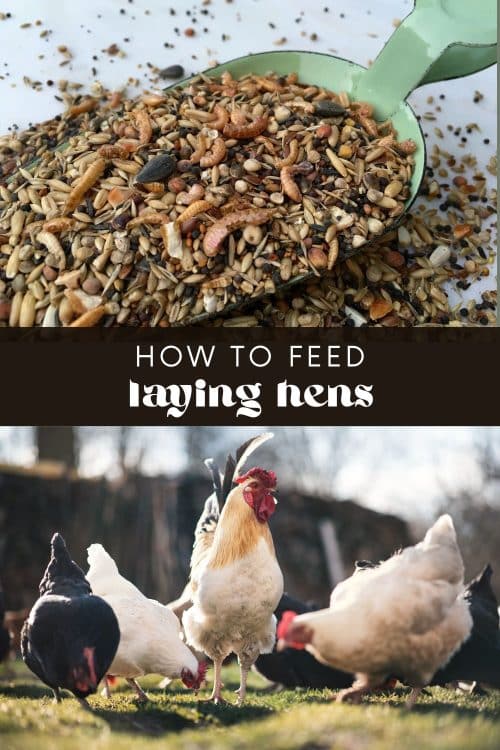
Consequences of Inadequate Nutrition
Inadequate nutrition can lead to a variety of health problems in chickens. Some of the most common problems that can result from an inadequate diet include:
- Poor growth and development: Chickens that do not receive a nutritionally balanced diet may not grow and develop properly. This can lead to smaller birds that are more prone to illness and less productive.
- Egg production problems: Chickens that do not receive a nutritionally balanced diet may have reduced egg production or produce eggs with thin or weak shells.
- Reproductive problems: Chickens that do not receive a nutritionally balanced diet may have difficulty reproducing, or may produce weak or deformed chicks.
- Increased susceptibility to disease: Chickens that do not receive a nutritionally balanced diet may have a weaker immune system and be more susceptible to diseases.
- Poor feather quality: Chickens that do not receive a nutritionally balanced diet may have poor feather quality, which can lead to increased susceptibility to cold temperatures and other environmental stressors.
In addition to these problems, chickens that do not receive a nutritionally balanced diet may also experience a variety of other health issues, including muscle weakness, reduced fertility, and increased mortality. It is important to provide chickens with a nutritionally balanced diet to ensure their overall health and well-being.
Feeding a Commercial Feed
Feeding a professionally balanced chicken feed is important for the health and well-being of the birds. A professionally balanced chicken feed is formulated to meet the specific nutritional needs of chickens, based on their age and stage of development. It is designed to provide all of the necessary nutrients in the correct proportions to ensure that the birds are healthy and able to grow and develop properly.
There are several benefits to feeding a professionally balanced chicken feed:
- Optimal growth and development: A professionally balanced chicken feed is formulated to support the growth and development of the birds. It provides the necessary nutrients in the correct proportions to ensure that the birds are able to grow and develop properly.
- Improved health: A nutritionally balanced diet is essential for the overall health of the birds. Chickens that receive a professionally balanced chicken feed are less likely to experience health problems and are more productive.
- Enhanced egg production: A professionally balanced chicken feed is also formulated to support egg production. It includes the necessary nutrients, such as calcium, to support eggshell production and help ensure that the eggs are of good quality.
- Cost-effective: Feeding a professionally balanced chicken feed can also be more cost-effective in the long run. While it may be tempting to try to save money by mixing your own feed or using a lower-quality feed, this can lead to health problems and reduced productivity, resulting in higher costs in the long run.

Looking for more in-depth chicken-keeping information? Take my course, Chicks with Confidence!
Chicks with Confidence is a straight to the point, fact based digital course that walks you through exactly what you need to get raising your baby chicks without breaking the bank or causing you to panic everytime they make a weird sounding peep!
Mixing Your Own Chicken Feed
It is possible to mix your own food for your chickens but it is important to be mindful of the nutritional needs of the birds and ensure that the feed you mix is nutritionally balanced. Mixing your own chicken feed can be a cost-effective way to feed your chickens, but it requires a good understanding of chicken nutrition and the ability to source and correctly mix the necessary ingredients.
If you are considering mixing your own chicken feed, it is important to do your research and consult with a veterinarian or poultry nutritionist to ensure that the feed you are preparing is nutritionally complete and balanced. There are many different recipes and formulas available for making homemade chicken feed, but it is important to choose one that is appropriate for the age and type of chicken you are feeding.
One of the advantages of mixing your own chicken feed is that you can tailor the mix to your specific needs and the preferences of your chickens. For example, you can choose to include or exclude certain ingredients based on the availability and cost of those ingredients, as well as the preferences of your chickens. Depending on ingredient availability, you may be mixing your chicken feed in bulk or in smaller quantities.
However, it is important to be aware that mixing your own chicken feed can be time-consuming and requires a consistent and reliable source of ingredients. It is also important to store the feed properly to ensure that it stays fresh and retains its nutritional value. When mixing your own feed, it can be hard to meet all of your chicken’s essential nutrients like vitamins and minerals. For most backyard chicken owners, this is not the best option for providing layer hens with the best nutrition.
Overall, mixing your own chicken feed can be a cost-effective way to feed your chickens, but it requires a good understanding of chicken nutrition and the ability to source and correctly mix the necessary ingredients. It is important to do your research and consult with a veterinarian or poultry nutritionist to ensure that the feed you are preparing is a balanced and nutritionally complete feed.
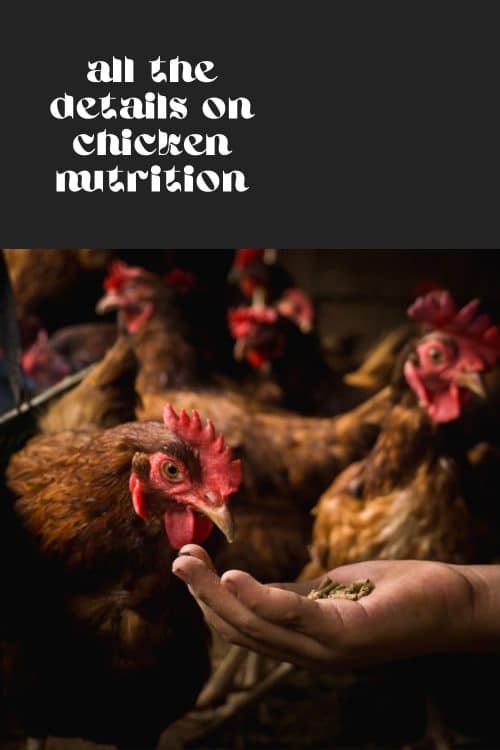
Fresh, Clean Water
Providing fresh, clean water for chickens is essential for the health and well-being of the birds. Water is an essential part of a chicken’s diet, as it is necessary for the proper functioning of the birds’ bodies. Chickens need access to clean water at all times in their chicken coop to stay hydrated and support their growth and development.
There are several important reasons why it is important to provide chickens with a constant source of water:
- Hydration: Water is essential for the proper hydration of chickens. Without access to clean water, chickens can become dehydrated, which can lead to a variety of health problems, including reduced egg production and increased susceptibility to disease.
- Nutrient absorption: Water is necessary for the proper absorption of nutrients from a chicken’s diet. Chickens that do not have access to clean water may not be able to properly utilize the nutrients in their feed, leading to poor growth and development.
- Temperature regulation: Water is also important for the regulation of body temperature in chickens. Chickens rely on water to help cool their bodies, and access to clean water is especially important in hot weather to prevent heat stroke.
- Digestion: Water is also necessary for the proper functioning of chickens’ digestive systems. Without access to clean water, chickens may have difficulty digesting their feed, leading to poor growth and development.
It is important to provide chickens with access to clean, fresh water at all times. Water should be changed daily to ensure that it is fresh and free from contaminants. Water containers should also be cleaned regularly to prevent the build-up of algae and other contaminants.
Chicken Grit
Chicken grit is a type of small, hard particles that are fed to chickens to help them digest their food. Chickens do not have teeth, so they rely on grit to grind up their food in the gizzard, a part of the digestive system. Grit is made up of small stones or other hard materials, such as crushed shells or granite, and is usually fed to chickens in a separate feeder.
Grit is especially important for chickens that are fed a diet that includes whole grains, as these can be difficult for the birds to digest without the aid of grit. Grit is also important for chickens that forage for their food, as they may consume small rocks or other hard materials while foraging.
It is important to provide chickens with access to grit at all times, as they need it to properly digest their food. Grit should be offered to chickens in a separate feeder, as it is not meant to be eaten in large quantities. Chickens will consume grit as needed to aid in digestion, and it is not necessary to provide a constant supply.
Scratch Grain
Scratch grain is a type of feed that is typically made up of a mixture of grains, such as corn, oats, and wheat. It is called “scratch” grain because it is meant to be fed to chickens as a supplement to their regular feed and is meant to be scratched or foraged for by the birds.
Scratch grain is usually fed to chickens in the afternoon or evening, as it is a high-energy treat that can help to keep the birds active and entertained. It is not meant to be the main source of nutrition for the birds, but rather a supplement to their regular feed.
Scratch grain can be fed to chickens as a treat or as a way to provide additional nutrients to the birds. It is important to offer scratch grain in moderation, as it is high in energy and can contribute to obesity in chickens if fed in excess.
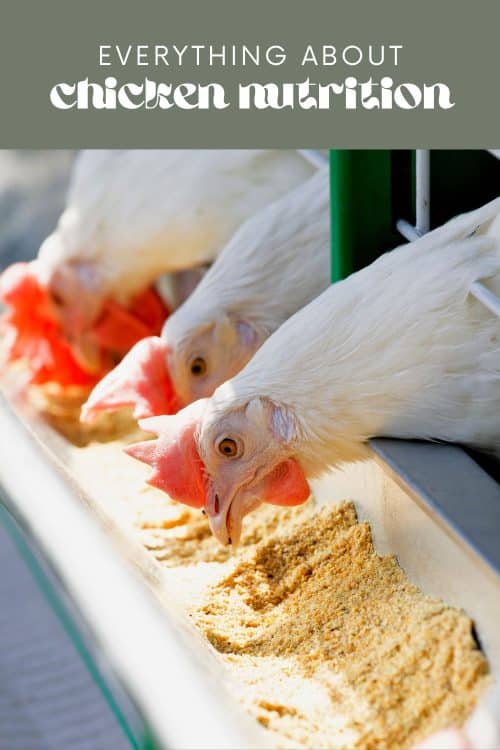
Overall, providing your chickens with a balanced, complete diet, fresh water, and kitchen scraps will ensure that you are meeting your chicken needs nutritionally so they can provide you with delicious eggs and stay in good health, even in times of stress, like colder months. Proper chicken nutrition is vital for productive and healthy chickens.

Looking for more in-depth chicken-keeping information? Take my course, Chicks with Confidence!
Chicks with Confidence is a straight to the point, fact based digital course that walks you through exactly what you need to get raising your baby chicks without breaking the bank or causing you to panic everytime they make a weird sounding peep!
More Articles on Chicken Keeping
- Olive Egger Chicken
- Chicken Tractor
- What age to chickens stop laying eggs?
- What do chickens eat?
- What can’t chickens eat?
- Best Laying Chickens for Backyard
- Can Chickens Eat Dog Food?
- What do you feed baby chicks?
- Do all chickens lay eggs?
- Are All Chickens Female
- PVC Pipe Chicken Feeder
- DIY Chicken Waterer
- DIY Chick Brooder
- Raising Chickens for Eggs
- Raising Baby Chicks
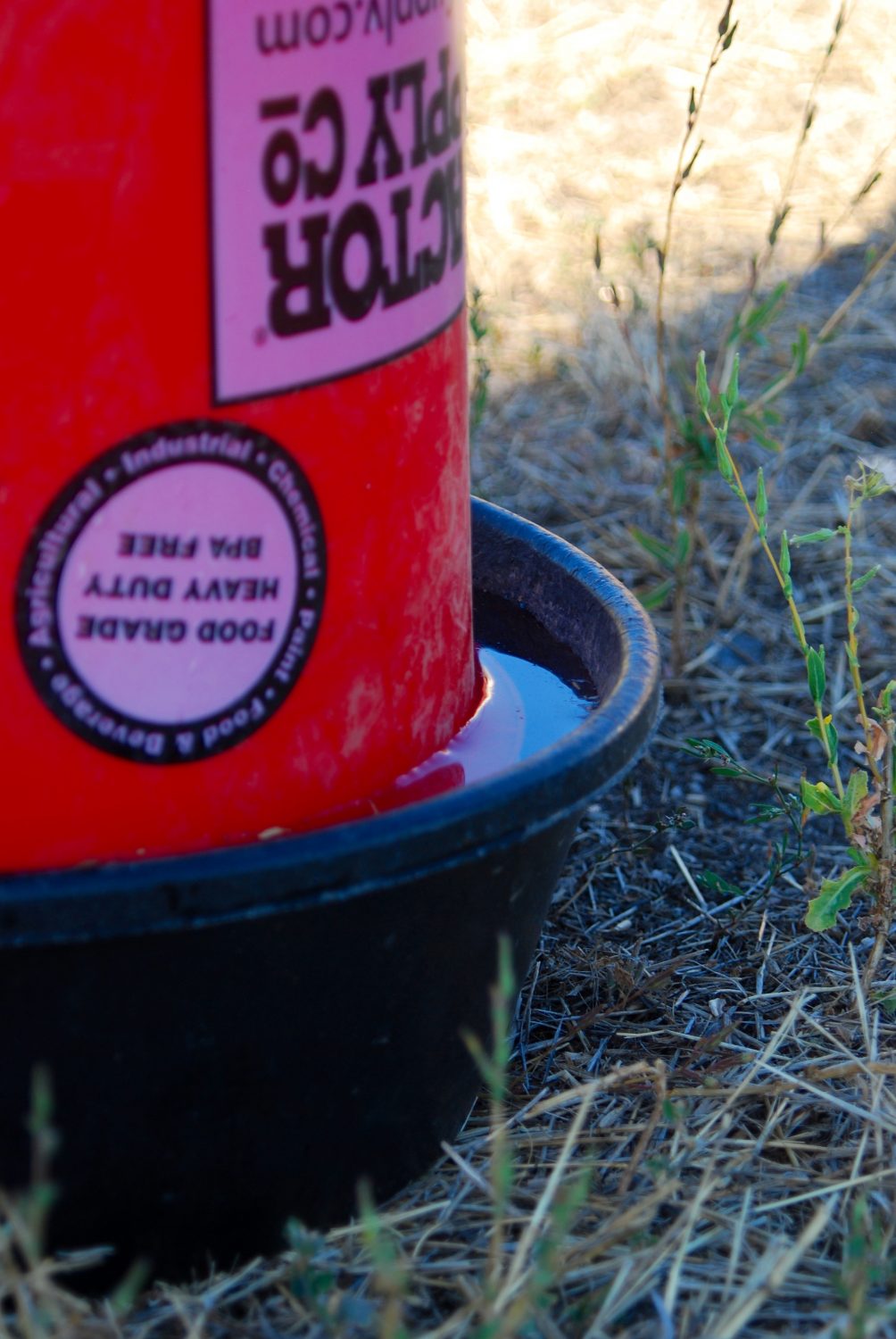


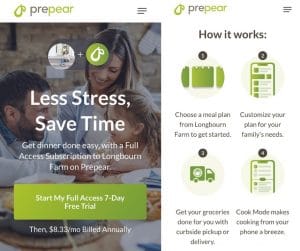

[…] Nutritional deficiencies or imbalances in the chicken’s diet […]